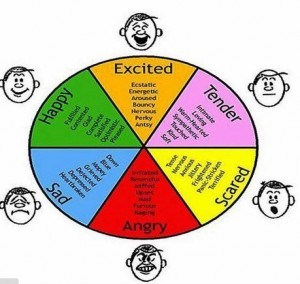12 Arti Kata Idiom Yang Digunakan Saat Bekerja + Contoh Kalimatnya
Sekolahbahasainggris– Idiom banyak digunakan saat Bekerja. Apa sajakah itu? Yuk disimak materi berikut tentang kat-kata idiom yang digunakan saat kita sedang bekerja beserta contoh kalimatnya:

- Shake hands=>> Berjabat tangan
You introduced them and they shook hands.
When two men meet for the first time, they do usually shake hands
Meeting with boss in the office, every employees must shake hands among another.
- Look out=>> Hati-hati
“Look out Budi!” Husin cried his friend almost stepped in front of the approaching car.
Why did the driver tell Joko to look out as he was getting off the bus?
Look out for the cars turning in your direction.
- Think of=>> Berpendapat tentang
What did you think of that accident which you saw last week?
I don’t think much of him as a football player.
- Get back=>>Kembali
Mrs. Kenny got back from Indonesia last evening.
When do you expect to get back from your trip to Tokyo?
Can you get us beck by 5.30 a.m.
- Catch cold=>>Demam
If you go out in this rain, you will surely catch cold.
How did she ever catch cold in such warm wether?
- Make up one’s mind=>> Memutuskan
Muhammad had made up his mind not to go to school this year.
Have you made up your mind yet as to where you are going to spend your vacation in this summer?
- Change one’s mind=>> Mengubah pikiran/Pendapat.
They have changed their mind and are going to Bali instead of to Bandung on their vacation.
Emtris has changed his mind about proposing to Jean atleast three times.
- The time being=>> Sekarang
For the time being my brother is clerking in Supermarket.
They are living in a apartment for the time being, but later they will try to find a small house.
- Get over=>> Pergi dari/Sembuh
It took him more than one week to get over his cold.
They do not think she will get over the loss of her husband.
- Call off=>> Membatalkan
The Adventure game was called off on account of lightness.
The doctor had to call off all her appointments for the day and rush to the hospital.
At first the workers planned to strike, but later they called it off.
- For good=>> Selamanya/Permanen
Tamin has gone back to Lampung for good. He will not return to Jakarta.
Has your friend returned to Palembang for good?
- In a hurry=>> Terburu-buru
Michael is in a hurry to catch his bus.
Gerald is the kind person who always seems to be in a hurry.
Semoga Bermanfaat para pembaca SBI!!!
















